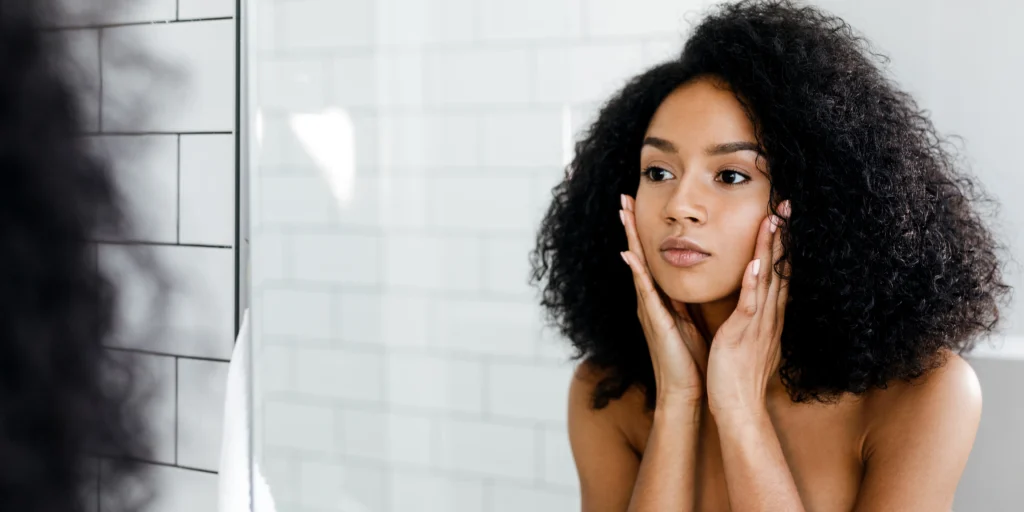
Acne, Bacne, and Blemishes | Dr. Nola Knows Skin
Whether you’ve entered puberty or are in your 20’s or 30’s with new onset acne, the sudden change in your appearance can be devastating and painful. There are many over-the- counter creams and home remedies that Dr. Google has to offer, but for most, those antidotes are ineffective and can make your skin condition worse. It may be cliche, but a fact of life, “you are what you eat” and “you do need your beauty to rest in order to destress”.
What causes acne?
For most teenagers when they enter puberty the shift in their hormones may cause their sebaceous glands to become more active requiring cleaners that contain salicylic acid to prevent and treat acne. Cleaning your pillowcases more often is also needed. For teenage girls’ cystic acne in addition to other symptoms may be a sign of PCOS, which is a condition that will need further workup by an OBGYN. The rule of thumb is always to make sure that we cover the basics first.
Being Aware of Your Diet:
Did you know that your diet can play a big role in preventing acne ? Certain foods can trigger acne flare-ups so, it’s important to eat a balanced diet with plenty of fruits, vegetables, lean protein, and whole grains. In addition, it’s important to stay hydrated by drinking plenty of water throughout the day.
Here are some foods you should avoid if you’re trying to prevent acne and bacne:
- Dairy: Dairy products, such as milk, cheese, and yogurt, contain hormones that can trigger acne. opt for non-dairy alternatives such as almond milk or soy milk.
- Sugar: High-glycemic foods like candy, soda, and other sugary treats can cause inflammation and lead to acne.
- Refined carbohydrates: Foods like white bread, pasta, and rice can cause a spike in insulin levels, which can trigger acne.
Here are some foods you can add to your diet to help prevent acne and bacne:
- Foods rich in omega-3 fatty acids: Salmon, walnuts, and chia seeds are great sources of omega-3 fatty acids, which can help reduce inflammation and prevent acne.
- Foods rich in antioxidants: Blueberries, dark chocolate, and green tea are great sources of antioxidants, which can help protect your skin from damage and prevent breakouts.
- Foods rich in zinc: Zinc is a mineral that can help reduce inflammation and prevent acne. Foods like oysters, beef, and pumpkin seeds are great sources of zinc.
Take Care of Your Skin:
Skincare is a crucial part of preventing acne, bacne, and blemishes. Here are some tips to keep your skin healthy and clear:
-
- Wash your face twice a day: It’s important to wash your face twice a day with a gentle cleanser to remove dirt, oil, and makeup that can clog pores and lead to breakouts.
- Exfoliate regularly: Exfoliating can help remove dead skin cells that can clog pores and lead to breakouts. Be sure to use a gentle exfoliator and avoid over-exfoliating, which can irritate the skin.
- Moisturize daily: Moisturizing helps keep your skin hydrated and prevents dryness, which can lead to breakouts. Use a non-comedogenic moisturizer to avoid clogging pores.
- Use acne-fighting products: Look for products that contain benzoyl peroxide or salicylic acid, which can help fight acne.
Making Lifestyle Changes:
Making small lifestyle changes can also help prevent acne, bacne, and blemishes. Here are some tips:
- Avoid touching your face: Touching your face can transfer oils and bacteria from your hands to your skin, which can lead to breakouts.
- Wear loose-fitting clothing: Tight-fitting clothing can trap sweat and oils against your skin, which can lead to breakouts. opt for loose-fitting clothing made from breathable fabrics.
- Exercise regularly: Exercise can help reduce stress, which can be a trigger for breakouts. It can also improve circulation and oxygen flow to the skin, which can help keep it healthy and clear.
- Get enough sleep: Lack of sleep can lead to stress, which can trigger breakouts. Aim for 7-8 hours of sleep each night to help keep your skin healthy.
Treating Blemishes After Breakouts:
If you do experience a breakout or blemish, there are steps you can take to treat them both. Here are some tips:
- Don’t pick at your blemishes: Picking at your blemishes can cause scarring and lead to more breakouts.
- Use a spot treatment: Look for products that contain benzoyl peroxide or salicylic acid to help reduce the size and redness of your blemish.
- Apply ice: Applying ice to your blemish can help reduce inflammation and swelling.
Preventing acne, bacne, and blemishes takes some effort, but it’s worth it to have clear, healthy skin. By following these tips on diet, skincare, and lifestyle changes, you can reduce your risk of developing these skin issues. If you do experience a breakout or blemish, be sure to take steps to treat it. And remember, if you’re struggling with persistent breakouts, don’t be afraid to seek professional advice from a primary care physician. Clear skin is within reach!
Treatment Options:
There are many prescriptions oral and topical medications on the market to treat acne that are very effective ranging from topical retinoids to antibiotics. Accutane has been used to treat severe cystic acne that has not responded to previous therapies. It works but has some serious side effects including mood changes, joint and muscle pain, and pancreatitis (which can be fatal).
Accutane was the option of last resort for many years… until AviClear! AviClear is the first and only FDA-cleared energy device for the treatment of mild to severe acne. It resolves current acne and helps prevent future acne by downregulating the sebaceous glands (oil glands)
This technology targets acne at the source with the wave of the future.
Overproduction of sebum by the sebaceous
glands are one of the leading causes of acne.

• Research indicates that at 1726 nm, pure sebum absorbs 2x more energy compared to water.
• AviClear™ selectively targets this exact frequency to damage the sebocytes and down-regulate sebum production.
AviClear is an ideal choice for patients, particularly those who are candidates for systemic therapy and/or are searching for a safe, effective, and drug-free solution for acne treatment.
Moderate to clear: Results continue to improve beyond the one-month follow-up.
